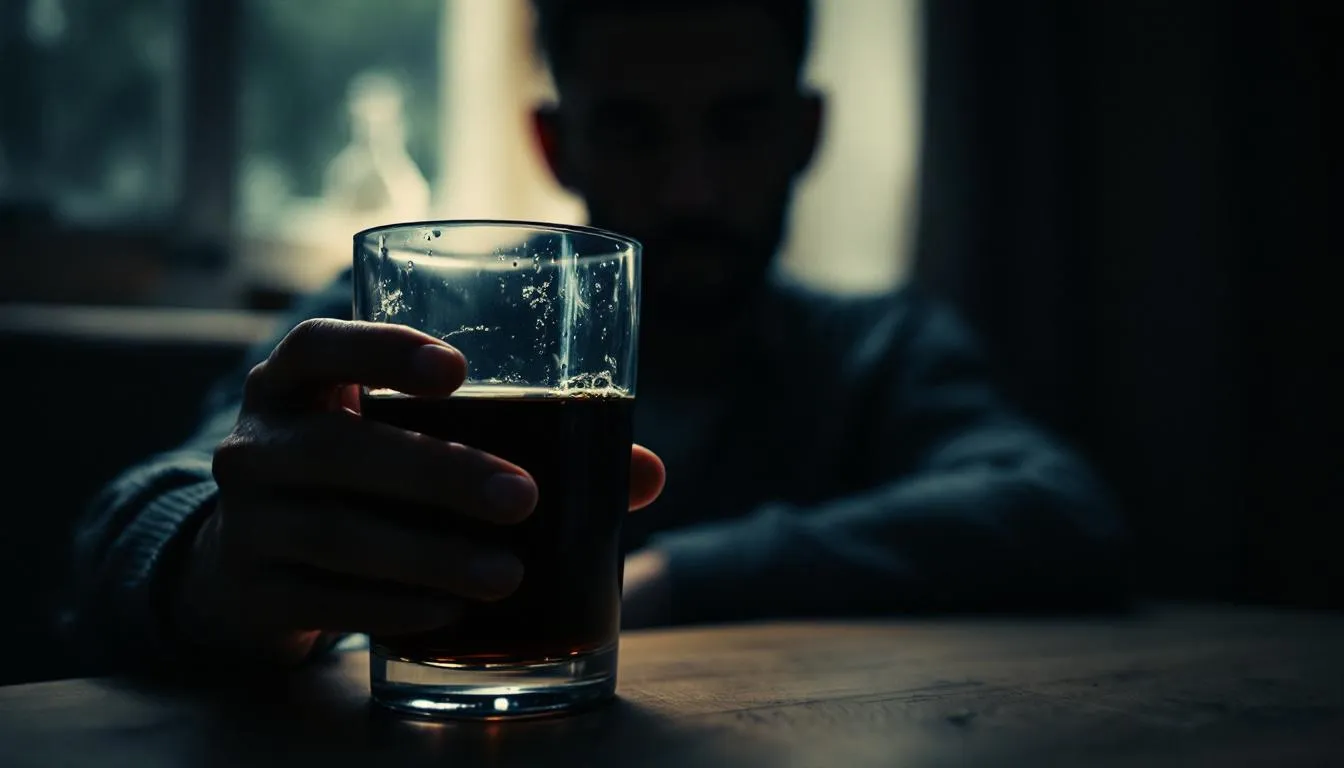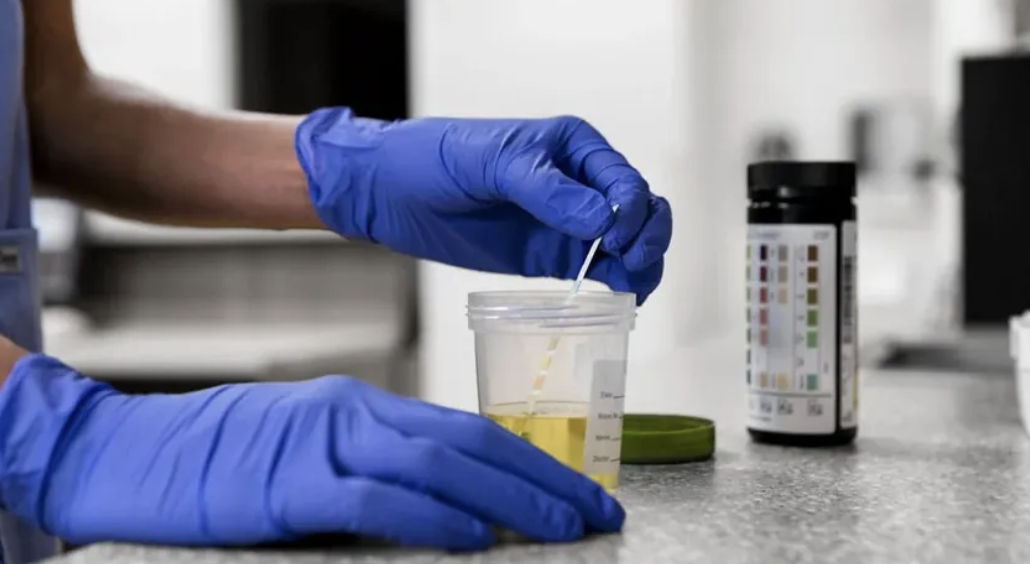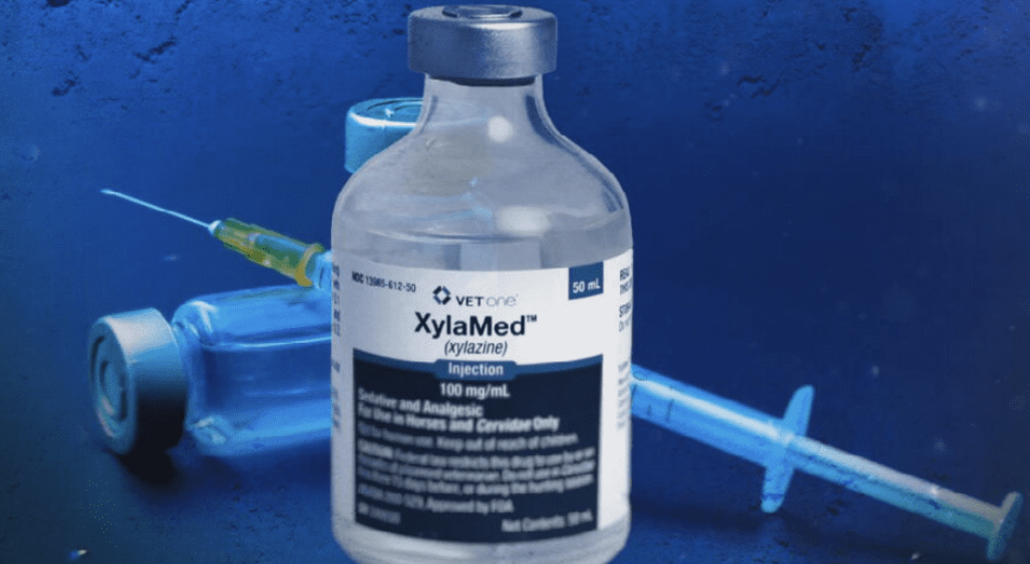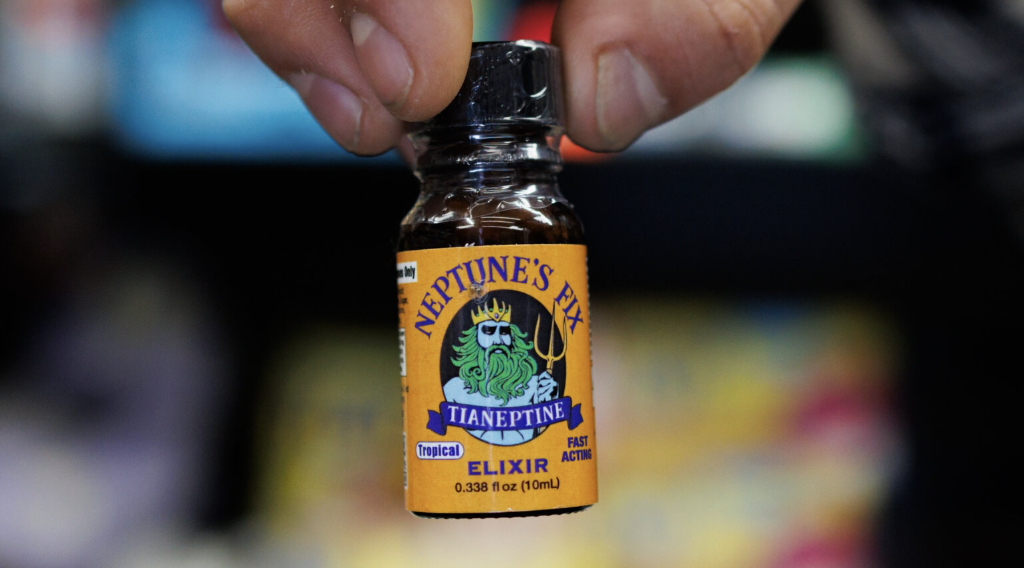How does alcohol and depression affect each other? Discover how alcohol use can worsen depressive symptoms, the science behind this relationship, and effective strategies to break the cycle of dependency and sadness.
Key Takeaways
- The relationship between alcohol and depression is bidirectional, where alcohol misuse can exacerbate depressive symptoms and vice versa.
- Integrated treatment approaches, addressing both alcohol use disorder and depression simultaneously, yield better recovery outcomes than treating each condition separately.
- Withdrawal from alcohol can initially intensify negative emotions, but abstaining can lead to significant mental health improvements over time.
Does alcohol cause depression or make it worse?
The relationship between alcohol and depression is bidirectional, meaning each can influence and exacerbate the other. Key points include:
- Drinking alcohol might temporarily lift your mood, but its long-term effects often lead to increased feelings of depression.
- Studies from the National Institutes of Health (NIH) and the World Health Organization (WHO) show that alcohol misuse can both worsen existing depressive symptoms and increase the risk of developing depression.
- Alcohol disrupts neurotransmitter balance in the brain, which can create or exacerbate depressive symptoms.
The cycle of using alcohol to cope with depression often leads to worsening symptoms over time. This is because the initial relief alcohol provides wears off, leaving individuals to feel worse than before. It’s a vicious cycle that can trap individuals in a pattern of dependency and deteriorating mental health, making depression worse.

How alcohol affects brain chemistry related to depression
Alcohol significantly alters brain chemicals, impacting neurotransmitters like serotonin and dopamine, which are crucial for regulating mood and emotional responses. As a depressant, alcohol slows down brain activity, impairing the brain’s ability to process information and emotions accurately. This disruption often results in heightened sadness, anxiety, and overall emotional instability.
Chronic alcohol consumption depletes neurotransmitter levels, leading to neuroinflammation, which can worsen depressive symptoms. When the effects of alcohol wear off, individuals may experience intensified negative emotions such as anger and sadness. This can create a cycle where more alcohol is consumed to alleviate these feelings, further disrupting brain chemistry and exacerbating depressive symptoms.
Moreover, alcohol’s effects on GABA and glutamate balance in the brain can lead to increased anxiety and depressive feelings. These disruptions can lead to chronic depressive disorders, making it harder to break free from alcohol dependence and depression.
Statistics showing the alcohol–depression link
Research consistently shows a strong correlation between heavy drinking and the prevalence of depressive disorders. For instance, studies reveal that the prevalence of depression among individuals with alcohol dependence can be as high as 63.8%. Additionally, the co-occurrence of major depression and alcohol use disorders ranges from 16% to 68%, highlighting the significant overlap between these conditions.
Higher levels of alcohol consumption are associated with a greater likelihood of experiencing depressive symptoms. Participants with higher AUDIT scores (19 and above) are statistically more likely to be depressed. These findings underscore the importance of addressing both alcohol use and depression in treatment to improve mental health outcomes.
Alcohol abuse vs clinical depression: What’s the difference?
While alcohol abuse and clinical depression can often occur together, they are distinct conditions with different symptoms and diagnostic criteria from the diagnostic and statistical manual. Alcohol use disorder is primarily characterized by a pattern of excessive drinking that leads to significant impairment or distress.
In contrast, clinical depression, or major depressive disorder, is defined by a persistent feeling of sadness or loss of interest affecting daily functioning. Understanding these differences is crucial for effective diagnosis and treatment, especially when alcohol addiction is involved alongside clinical depression.
Key symptoms of alcohol abuse
Common indicators of alcohol abuse include:
- Increased tolerance to alcohol
- Unsuccessful attempts to cut down on drinking
- Strong cravings for alcohol
- Struggling to limit drinking despite wanting to cut back
- Withdrawal symptoms, such as nausea or shaking, when alcohol consumption decreases or stops
- Neglecting major responsibilities at work or home due to drinking habits
Continuing to drink despite knowing it causes physical or social issues is another significant sign of alcohol abuse and substance abuse. A person may also develop a higher tolerance to alcohol, needing more to achieve the same effects. These symptoms highlight the detrimental impact of excessive alcohol use and alcohol misuse on various aspects of an individual’s life, especially when they drink excessively.
Key symptoms of clinical depression
Clinical depression manifests as persistent feelings of sadness and loss of interest in previously enjoyed activities. Individuals who feel depressed and experience depressive symptoms may also have physical symptoms like fatigue, changes in appetite, and sleep disturbances, which are common in those with clinical depression. These symptoms can severely impact daily functioning, making it difficult for individuals to carry out their usual activities and may contribute to a depressed mood.
Other key symptoms include feelings of hopelessness, persistent fatigue, and difficulty concentrating. In severe cases, individuals may experience suicidal thoughts or behaviors. These symptoms underscore the profound impact depression can have on an individual’s quality of life.
When they occur together (dual diagnosis)
Dual diagnosis occurs when an individual suffers from both alcohol use disorder and clinical depression simultaneously. This co-occurrence often results in more severe symptoms and a higher risk of suicidal thoughts compared to those with only one condition. The presence of both conditions complicates treatment, often requiring integrated approaches to address both issues.
Patients with dual diagnosis often face poorer outcomes if only one condition is treated. Effective treatment needs a comprehensive approach that tackles both alcohol use and mental health issues simultaneously, including mental disorders. This integrated treatment approach can significantly improve recovery outcomes for individuals with co-occurring disorders.
Why do people with depression drink alcohol?
People with depression often turn to alcohol as a way to temporarily escape their emotional pain. This coping mechanism can provide short-term relief but usually leads to a cycle of dependency and worsening depressive symptoms among depressed people.
Understanding the reasons behind this behavior is crucial for developing effective treatment strategies.
Self-medication theory
The self-medication hypothesis suggests that individuals with mood or anxiety disorders might use substances like alcohol to alleviate their distressing symptoms. Research indicates that a notable proportion of individuals with mood disorders report using alcohol or drug use for self-medication. This behavior can lead to the development of substance use disorders as individuals increasingly rely on alcohol to cope with their symptoms.
Certain demographic factors, such as being male, younger age, and being separated or divorced, are associated with higher rates of self-medication with alcohol among those with mood disorders. Longitudinal studies indicate that those who self-medicate for anxiety or mood symptoms are significantly more likely to develop new substance dependence.
Social and environmental triggers
Life circumstances such as trauma, social isolation, and financial hardship can exacerbate depressive symptoms and prompt increased alcohol consumption. Social isolation, in particular, can amplify depressive feelings, potentially leading individuals to seek solace in alcohol. These stressors can lead to a cycle where alcohol becomes a coping mechanism for life’s challenges.
Understanding these social and environmental triggers is crucial for developing effective prevention and treatment strategies. Addressing these underlying issues can help reduce the reliance on alcohol as a coping mechanism and improve overall mental health.
How alcohol worsens depression over time
Alcohol can lead to a cycle of dependency, where increasing consumption is needed to alleviate negative feelings caused by its initial effects. This cycle can result in worsening depressive symptoms, impaired coping mechanisms, and alcohol increases psychological distress, including alcohol related problems.
This can severely impact an individual’s mental and emotional mental well being over time.
Increased depressive episodes and suicidal ideation
Heavy drinking is associated with higher risks of both suicidal thoughts and self-harm due to its impact on inhibitions. Studies show that individuals with alcohol use disorder frequently experience suicidal thoughts, with around 62% reporting such ideations. The likelihood of suicidal thoughts is amplified among those suffering from both depression and alcohol dependence, making them a high-risk group for suicidal behaviors.
Alcohol misuse can lead to increased psychological distress and impulsivity, which are significant factors influencing suicidal actions. Research indicates that acute alcohol consumption and the amount of alcohol consumed are associated with an increased risk of suicide attempts due to impaired judgment and increased aggression.
These findings highlight the importance of addressing both alcohol use and depressive symptoms in treatment to reduce the risk of suicidal behaviors, according to the study’s findings.
Impact on medication and therapy
Consuming alcohol while on antidepressants can worsen depression and amplify side effects, complicating recovery efforts. Alcohol can interfere with the effectiveness of antidepressant medications, potentially exacerbating depressive symptoms and hindering treatment efficacy. This combination can also impair judgment and coordination, making it more challenging to manage daily activities.
Certain medications, like monoamine oxidase inhibitors (MAOIs), can interact dangerously with alcohol, leading to severe health risks. The presence of alcohol in a person’s system can also contribute to increased side effects when taking antidepressants.
Therefore, it is crucial for individuals with depression to avoid alcohol to ensure the effectiveness of their treatment and improve their overall mental health.
What happens when you stop drinking with depression?
Quitting alcohol can be a turning point for individuals with depression, leading to significant improvements in mental health. However, the process can also be challenging, as individuals often experience intensified negative emotions and withdrawal symptoms initially.
Knowing what to expect can help individuals prepare for this crucial step toward recovery.

Mental health improvements after quitting alcohol
Abstaining from alcohol can lead to an improvement in mood and a reduction in depressive symptoms over time. Studies highlight that many individuals experience a decrease in depressive symptoms after they stop consuming alcohol. This improvement is due to the stabilization of brain chemistry and the elimination of alcohol’s depressive effects on the central nervous system.
Quitting alcohol benefits extend beyond improved mood. Individuals often report better physical health, increased energy levels, and improved overall well-being. These positive changes can reinforce the decision to maintain sobriety and continue working toward a healthier lifestyle.
Withdrawal and temporary mood changes
During the withdrawal phase, many individuals may experience temporary mood swings and increased depressive feelings as their brain chemistry stabilizes. Alcohol withdrawal can lead to short-term mood fluctuations, including increased anxiety and irritability. These changes are often temporary and may resolve as the body adjusts to the absence of alcohol.
The severity and duration of mood changes during alcohol withdrawal vary significantly based on individual differences and the length of alcohol use. It is crucial for individuals to seek medical supervision during this period to manage withdrawal symptoms effectively and ensure a safe transition to sobriety.
Treatment options for co-occurring alcohol and depression disorders
Effective treatment for individuals with both alcohol use disorder and depression requires an integrated approach that addresses both conditions simultaneously. Research shows that dual diagnosis treatment, which combines therapeutic techniques for both alcohol use and depression, leads to better outcomes than treating each condition separately.
Integrated dual diagnosis treatment
Integrated treatment combines psychotherapy and pharmacological treatments to address both alcohol dependency and depressive symptoms simultaneously. This approach often demonstrates better outcomes compared to treating each condition separately. An interdisciplinary team approach in integrated treatment allows for improved communication and more tailored interventions.
Patients benefit from comprehensive care that takes into account the complexities of their health conditions and symptoms. Addressing both conditions in a coordinated manner increases the likelihood of achieving long-term recovery and better mental health outcomes in general psychiatry.
Medications used for both conditions
Certain medications can alleviate symptoms of both alcohol withdrawal and depression, and alcohol addiction medication options like naltrexone can support long-term recovery. Selective serotonin reuptake inhibitors (SSRIs) are often the first choice for treating depression in individuals with alcohol use disorder due to their safety and lower risk of adverse interactions. Additionally, FDA-approved medications like acamprosate, disulfiram, and naltrexone can help reduce alcohol consumption.
The combination of sertraline and naltrexone has shown promise in increasing abstinence days and improving mood symptoms in those with both alcohol use disorder and major depression. It is vital to consult healthcare providers to ensure the safe use of these medications and to monitor for any potential interactions.
Therapy options: CBT, DBT, and motivational interviewing
Cognitive Behavioral Therapy (CBT) is effective in treating both alcohol use disorder and depression by addressing negative thought patterns. Research indicates that the combined approach of CBT and motivational interviewing (MI) is beneficial for treating individuals with comorbid alcohol use disorder and major depression. Digital versions of CBT have also been found to be effective in reducing depressive symptoms.
Dialectical Behavior Therapy (DBT) can help individuals manage their emotions and develop healthier coping mechanisms. This therapy emphasizes mindfulness, emotional regulation, and interpersonal effectiveness, which are crucial for managing both alcohol dependency and depressive symptoms.
These therapies offer a structured approach to recovery, helping individuals build resilience and improve their overall mental health.
Alcohol and depression in teens and young adults
Adolescents and young adults are particularly vulnerable to the effects of alcohol and depression. Heavy drinking during these developmental years is linked to a higher incidence of Major Depressive Disorder (MDD), highlighting the long-term dangers of teen alcohol abuse.
Knowing the risk factors and long-term mental health risks of early alcohol use is crucial for prevention and intervention. Understanding the risk factor of early alcohol use can enhance these efforts.

Early alcohol use and future depression risk
Research shows that early initiation of drinking is linked to a higher likelihood of developing major depressive disorder later in life. Adolescents engaging in heavy drinking and binge drinking show a higher incidence of depressive disorders compared to their peers who abstain from alcohol. Early exposure to alcohol can disrupt normal brain development and increase the risk of long-term mental health issues, influencing their future drinking patterns.
The link between early alcohol use and future depression underscores the importance of early intervention and education. Parents, educators, and healthcare providers play a vital role in identifying at-risk individuals and providing the necessary support to prevent the development of depressive disorders.
Warning signs in adolescents
Signs of depression in teens may include changes in mood, withdrawal from friends, and decreased interest in activities. Other indicators include irritability, chronic fatigue, difficulty focusing, and thoughts of self-harm. Physical indications of alcohol use may encompass bloodshot eyes, impaired speech, and a noticeable smell of alcohol.
Changes in peer groups, erratic behavior, and declining school performance can also signal alcohol abuse in teenagers. Recognizing these warning signs early can help parents and educators intervene and provide the necessary support to address both alcohol use and depressive symptoms.
How to help someone struggling with alcohol and depression
Supporting someone with both alcohol issues and depression requires patience and understanding, and knowing how to help someone with alcohol addiction is key to making a positive impact. Engaging in a supportive conversation and knowing when to seek professional help are essential steps in providing effective support.
Starting the conversation
Initiating a discussion about alcohol and depression should be approached with empathy, ensuring the person feels safe and supported. Choosing a calm moment and a distraction-free environment is essential for discussing alcohol use with a loved one. Using positive language and focusing on specific changes can make the conversation more constructive.
Offering support is crucial; let the person know you understand their struggles and are available to help them when they feel the urge to drink. Collaborating on setting measurable goals, like stopping drinking on specific days, gives a clear direction for the person to follow.
When and how to seek professional help
Professional help should be sought if a person exhibits severe symptoms of depression or alcohol dependency, signaling a need for immediate intervention. To support this process:
- Encourage a loved one to see a doctor, providing them with a trusted space to discuss their alcohol use.
- Recognize the signs of an alcohol problem, which can prompt individuals to seek professional help.
- Pay attention to symptoms like loss of control over drinking, as these indicate the need for intervention.
Treatment options for alcohol use disorder vary and may include behavioral therapies, medications, or mutual-support groups tailored to individual needs. Engaging with a primary care provider is often a critical first step in addressing alcohol-related issues, as they can offer evaluations and referrals for specialized treatment.
Bottom Line: Alcohol and Depression
Understanding the link between alcohol and depression is crucial for effective treatment and recovery. Alcohol can both exacerbate existing depressive symptoms and increase the risk of developing depression. Integrated treatment approaches that address both conditions simultaneously are essential for improving outcomes. By recognizing the signs, addressing underlying issues, and seeking professional help, individuals can break the cycle of alcohol dependency and achieve better mental health. Remember, recovery is possible, and support is available.
FAQs about alcohol and depression
Can depression go away if I stop drinking?
Yes, stopping drinking can lead to significant improvement in depression symptoms, although seeking professional treatment is advisable for optimal recovery.
Is alcohol a depressant?
Yes, alcohol is a central nervous system depressant that can lower brain activity and adversely affect mood regulation. It’s important to be mindful of its effects on mental health.
What’s the relapse risk if I’m depressed and quit alcohol?
The relapse risk is significantly higher for individuals who are depressed and quit alcohol without a dual diagnosis treatment plan, increasing the chances of alcohol relapse without proper support.
What are the key symptoms of alcohol abuse?
The key symptoms of alcohol abuse include increased tolerance, intense cravings, withdrawal symptoms, and persistently drinking despite awareness of resulting issues. Recognizing these signs is crucial for seeking help and support.
What are the key symptoms of clinical depression?
The key symptoms of clinical depression include persistent sadness, loss of interest in daily activities, fatigue, changes in appetite and sleep patterns, and suicidal thoughts. Recognizing these symptoms is crucial for seeking timely help.
















